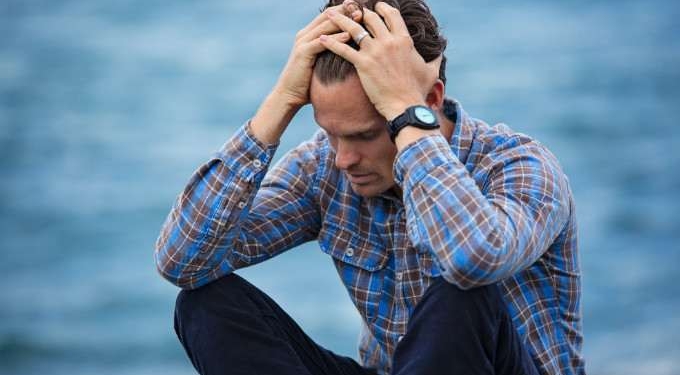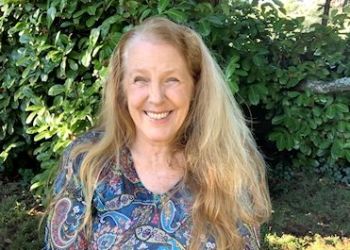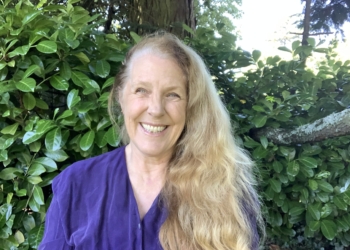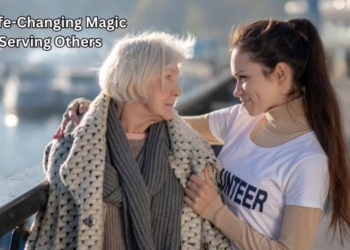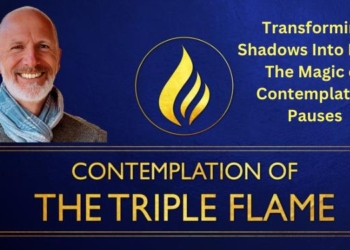
Photo by Nathan Cowley from Pexels
By Debra Mittler | Tiny Buddha
The root cause of suffering for many of us is believing that there’s something’s wrong with us. Psychiatrists’ and therapists’ offices are filled with people who are carrying this false belief, most often stemming from traumatic or painful childhood experiences, or even people telling us this directly.
Sometimes we inferred this idea because we were treated badly as children and/or we didn’t get our physical or emotional needs met. Perhaps we were called selfish or bad because we “asked for too much,” or we were told we couldn’t have what we wanted because we didn’t “earn or deserve it.”
Maybe we blamed ourselves for our parents’ fighting and/or divorce, or issues that were going on in our family, because we believed they were our fault.
Our little minds drew conclusions, and for some of us, self-abandonment became the solution. We did this because we thought there was something wrong with us—welcome suppression, people-pleasing, and “good little boy or girl.”
Without conscious awareness, we tried to be and do what others wanted us to be and do, so they’d love and accept us. By doing this, we hid our truth. We also concluded that it wasn’t okay to feel how we were feeling, so we made sure we suppressed our emotions, especially those that seemed forbidden, like anger or sadness.
All this disconnected us from our authenticity. Many of us live our whole lives according to how others told us we needed to be, and we’re never truly happy.
Because we believed it was wrong for us to be ourselves, some of us created symptoms like addictions, depression, eating disorders, anxiety, or even illness in the body.
Now, we have more reasons to believe we’re “bad” or “wrong” because we may think that having these symptoms proves it. Welcome more self-hatred—now we’re living with a big inner debate. It becomes a no-win situation and we frantically turn to escapism and/or we create numbing/survival mechanisms.
We think, “I can only show the good me,”—“good” according to the rules of our family and society—and “I can’t show the bad me,” which are just parts of ourselves that weren’t acceptable to our family or society. By doing this we never really experience inner peace; instead, we become fragmented beings.
Welcome shame and shadow “hiding.” What’s that? Shadow hiding is denying or disowning parts of ourselves that were not allowed to be seen; we pushed them down in our shadows and put them in our “forbidden cage.”
Most people think our shadows carry our deep hurt and pain, and that may be, but in our shadows also resides our authenticity, our lovability, our natural gifts, talents, and abilities, our creativity, and our greatest qualities
So, how does the idea that something’s wrong with us effect our lives? If we have this as our core belief, we may create symptoms like self-sabotage, anxiety, helplessness, hopelessness, and the other symptoms I mentioned above.
We filter our perceptions and points of views through the ways we feel about ourselves, and we let that feeling create our reality.
We may deny our true desires and what really makes us happy. Sometimes we do this unconsciously; however, it shows up as procrastinating and/or self-sabotaging or saying we don’t know what we like or how to have fun and play—because we believe doing so isn’t okay.
We may have a hard time speaking our truth and asking for what we need in relationships; we’ve become people-pleasing beings because we learned we needed to abandon ourselves in order to be accepted and be a good person.
We may try to suppress, deny, or run away from any negative, sad, or unacceptable feelings because we were told that we were bad or wrong for feeling what we felt.
If shame is running in our system, we’ll never feel like a good enough person. We may even feel like a failure, or, we may overcompensate, trying to prove we’re good enough through success, fame, and accumulation, but deep inside we’re empty and not happy.
Just an FYI, there’s nothing wrong with these things; it’s the energy behind what we’re doing that we need to pay attention to.
There are many ways this false idea plays out, especially in the energy of fear and doubt.
So, here’s a bit of what it was like for me, having this false idea that there was something wrong with me. This belief was created from the messages I received and inferred when I was a little being; constantly being told that I was wrong, fat, ugly, stupid, selfish, and that I asked for too much.
From my earliest memory I ate a lot; food comforted and soothed me. It gave me a way to focus my energy, numb my painful feelings, and keep me safe in an environment in which I was not accepted.
Then at age thirteen my doctor told me to go on a diet, and at age fifteen I was anorexic, which made me feel even more wrong and bad.
The anorexia was a symptom stemming from the feeling and belief that I was undeserving, bad, and wrong and that I needed to deprive myself in order to be accepted and loved. Kinda screwy, eh?
What most people don’t understand is that anorexia isn’t just about starving our body, we’re starving ourselves from living. It’s self-denial, self-abandonment and self-abuse, the opposite of self-honoring and self-loving.



